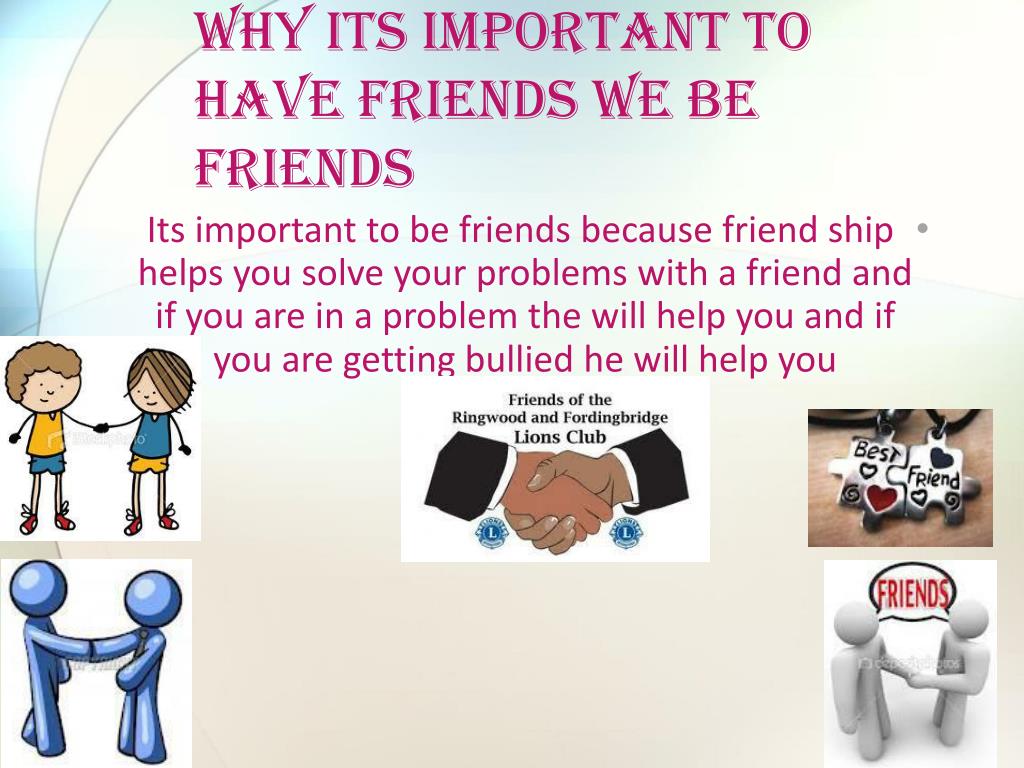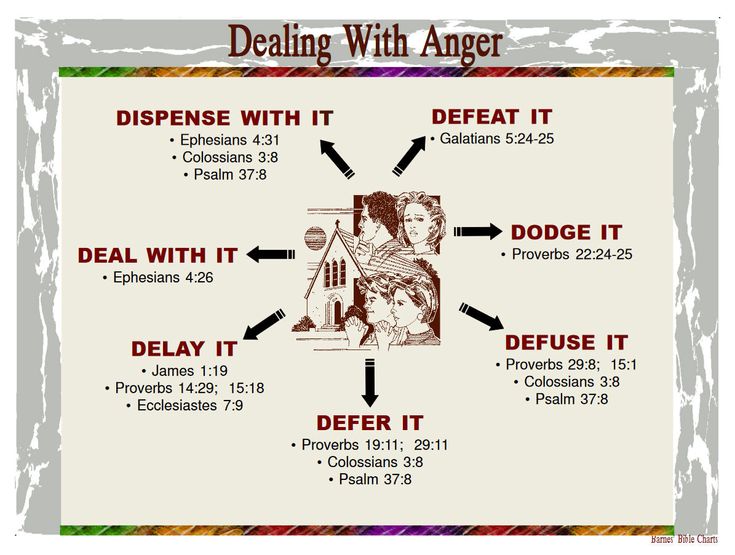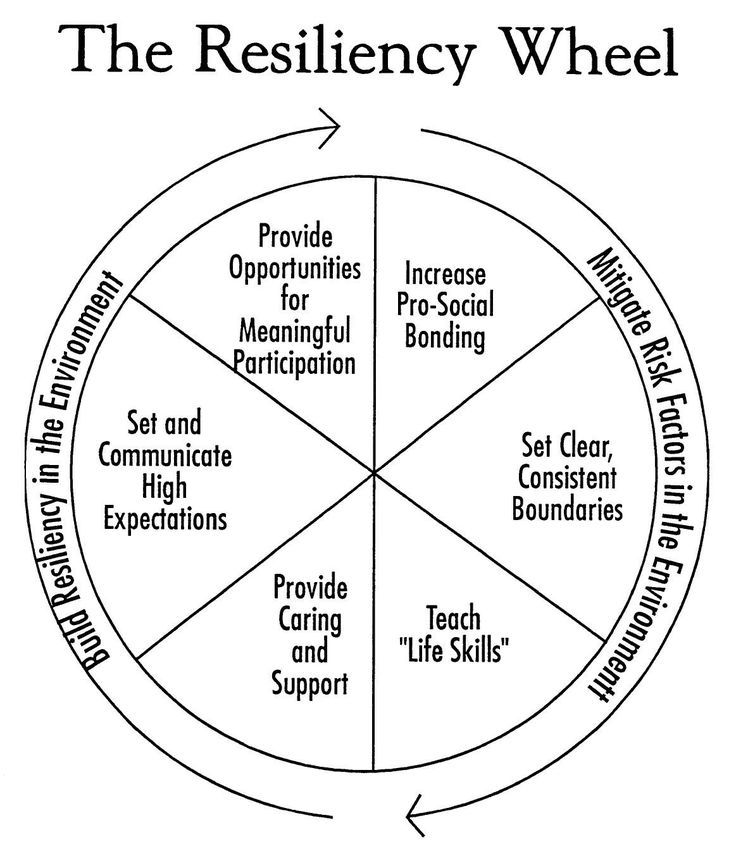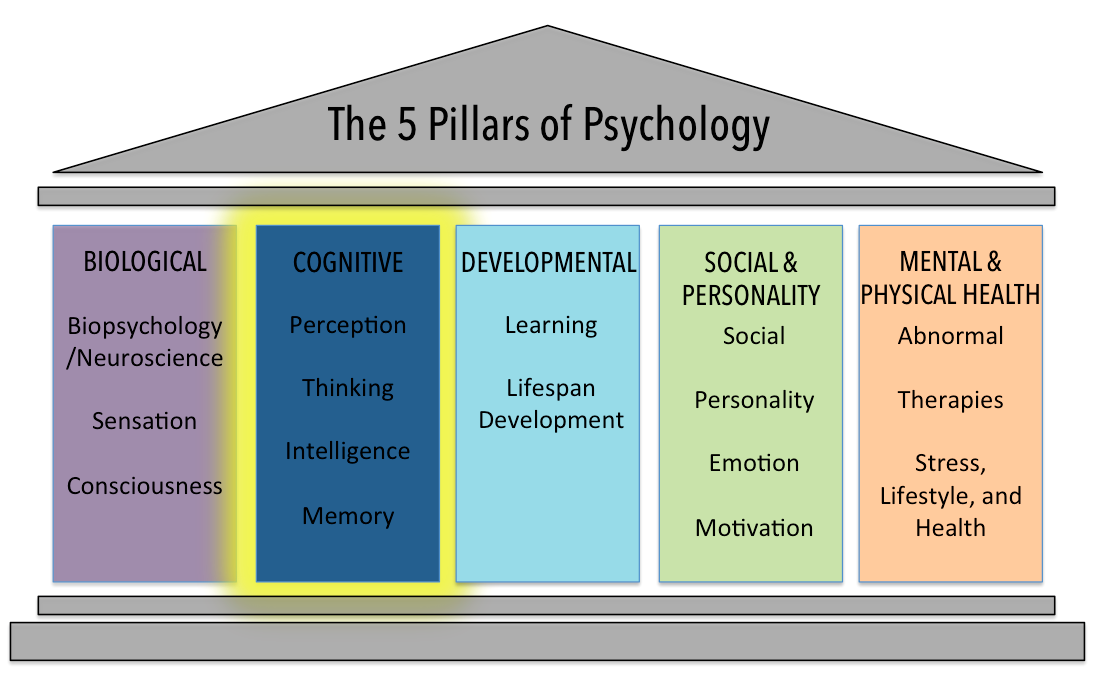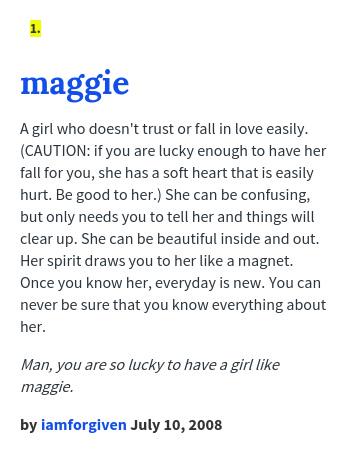Daughter estranged from mother
How to Manage Estranged Children
If you are estranged from your adult child, if your child has cut you out of his or her life—whether for a long or short time—it is a gut-wrenching experience. When your child cuts you out of her life it provokes deep feelings of shame, guilt, bewilderment, and hurt, all of which can easily turn to anger. On top of that, it can also arouse people’s worst suspicions (surely, the Smiths must be terrible parents for their daughter to cut them off like that!) and leave you feeling judged, even by friends and family.
Sometimes, of course, there are circumstances in which cutting off from a parent is the only viable option for an adult child (age 18 and older), for instance, in the case of past or present physical, emotional or sexual abuse from a parent.
While it’s common to pin the reason for the estrangement on everything from money issues, to personality conflicts, to divorce or difficult family dynamics, many times, though, estranged parents are left in the dark trying to figure out what went wrong.
And when you are in the dark, the easiest thing to blame is yourself—to believe that you failed as a parent.
But here’s the reality: it was not your choice to sever the relationship. Although you may have contributed to the tensions between you, you are not responsible for your child’s choice to cut you off.
Many adult children struggle with their parents, or with money issues, etc., but not all of them cut ties with their parents. Why do some cut off while others go through similar struggles and stay connected?
Why Some Kids Distance Themselves
We humans manage stress in pretty predictable ways. We have a fight or flight response just like other species. And some people are more prone to distancing (flight) when emotional intensity gets high.
Let’s take Joe, for example. Joe was living at home after college, and his parents felt he was aimless. He would sleep in late, not help around the house, wouldn’t get a steady job, and was rude and disrespectful.
Joe’s parents were understandably concerned and anxious about his lack of direction. They would nag, yell, and question him daily as to his game plan. He would be vague or get nasty, which caused his parents to get on his back even more.
Eventually, Joe moved out. He didn’t tell his parents where he moved and didn’t contact them for over a year.
To understand Joe’s response, we have to recognize that when some people feel anxious, tired of conflict or pressure, or too much of the sticky family togetherness, their response is to distance themselves, be it emotionally, physically or both. When a person distances from others, they feel a sense of relief because the distance seemingly brings the conflict to an end. Of course, nothing is actually resolved; instead, more stress is generated.
On the outside, it looks as though Joe and his parents are disconnected. But on the inside, they are actually thinking about each other all the time and remain overly focused on one another. They are, in fact, still extremely involved with one another: they are emotionally bound up together, even though all communication has ceased. Neither is free from the original problem; nor are they free from each other.
They are, in fact, still extremely involved with one another: they are emotionally bound up together, even though all communication has ceased. Neither is free from the original problem; nor are they free from each other.
Extreme Distancing: Cutting Off
Distancing, at its extreme, turns to cutting off. It can occur after long periods of conflict or as a sudden reaction to a difficult encounter. Whatever the issue, the person doing the cutting off has difficulty addressing and resolving the problem directly and maturely. Instead, like Joe, they stop communicating. Continuing the relationship seems unmanageable to them.
When a parent and child are too emotionally bound up with each other, they are more susceptible to cutting off when anxiety is high.
Joe and his parents, for instance, were overly involved and entangled with each other. He was not taking responsibility for himself, nor were his parents taking responsibility for themselves.
His parents did not stand up and let him know what they would and wouldn’t accept. Instead they nagged, begged and hoped he would change. He dug his heels in deeper, did less when pushed, and refused to address his part of the problem.
Instead they nagged, begged and hoped he would change. He dug his heels in deeper, did less when pushed, and refused to address his part of the problem.
They were living in reaction to one another, rather than each taking responsibility for their part of the family conflict. The only way that Joe could see to solve the problem was to distance himself and eventually cut-off from his parents; Joe didn’t have the skills necessary to untie the knots, to grow up and face himself.
Parents feel powerless when no contact is possible, when they can’t negotiate or even talk with their child. Should you contact your child or not? How long should you try? What should you say?
Five Tips When Estranged and Cut Off From Your Child
1. Get Support
Being cut off by your child, with no ability to understand, communicate and resolve things, is difficult enough. That’s why being connected to others who love and understand you is particularly important. In addition to reaching out to friends and family, consider joining a support group. If you are not able to function at your best, get some professional help.
If you are not able to function at your best, get some professional help.
2. Don’t Cut off in Response
You are not the one cutting ties; your child is. Don’t cut off your child in response. Continue to reach out to him, letting him know that you love him and that you want to mend whatever has broken. Send birthday and holiday messages as well as occasional brief notes or emails. Simply say that you are thinking about him and hope to have the opportunity to reconnect. Send your warmth, love and compassion—as you get on with your life.
3. Don’t Feed the Anger
It’s understandable to feel angry. And in their attempt to be supportive, friends and family may fuel your feelings of betrayal, inadvertently increasing your anger. Anger is natural, but not helpful. Step back and try to understand what led to this estrangement. What patterns were operating in your family dance? If you can look at your family from a more factual vantage point, it may feel less personal. No one is to blame. Now if the door opens, you will be in a much better position to reconcile.
No one is to blame. Now if the door opens, you will be in a much better position to reconcile.
4. Listen to Your Child Without Defending Yourself
If the door opens with your child, listen with an open heart. Listen to her perceptions of what wrongs took place. Even if you disagree with her, look for the grains of truth. Be willing to look at yourself. It’s hard to hear these criticisms, especially if your intentions were misunderstood. So prepare yourself to handle this. Your adult child may need to hold on to blame as a way to manage her own anxiety. Just letting her know that you hear her will go a long way. Keep in mind that she, too, had to be in tremendous pain to reach the point of shutting you out. Try to empathize with her pain rather than get caught up in the hurt and anger.
5. Focus on Yourself, Not Your Child
If you do begin communicating again, you will be in a position to learn from the mistakes of the past and work toward an improved relationship. Put your efforts into changing yourself, not your child. Let go of your resentments regarding the estrangement. Understand his need to flee—and forgive him.
Put your efforts into changing yourself, not your child. Let go of your resentments regarding the estrangement. Understand his need to flee—and forgive him.
Understanding and Hope
Get to know the adult child you have, not the child you think he should have been. Allow him to get to know you. If your child still has made no contact, grieve the loss and know there is still hope. Try to manage your anxiety, and do the right thing by staying in touch with him in a non-intrusive way: occasionally and lovingly. Things may change.
Rather than blame yourself or your child for this pain, use your energy to learn about yourself, your own family history and patterns in your other relationships. Look for other patterns of cutting off in your family tree.
Remember that shutting a person out is a response to anxiety and a family that is overly entangled with one another. Your actions or lack of action didn’t cause this. Cutting off is a way people manage anxiety when they don’t know a better way. The love and caring is there; the ability to solve differences is not. You did not make your child to turn away. That was her decision. It may have been a poor one, but it was the best she could do at the time. Try to get your focus off of her at least 50 percent of the day, which will make a difference.
The love and caring is there; the ability to solve differences is not. You did not make your child to turn away. That was her decision. It may have been a poor one, but it was the best she could do at the time. Try to get your focus off of her at least 50 percent of the day, which will make a difference.
Your pain is real. Be mindful and compassionate of it, but don’t allow it to define or overwhelm you. Put the focus on what you have control of: your own life.
Related content:
Living with a Broken Heart: Are You Estranged from Your Child?
Empowering Parents Podcast: Apple, Spotify, Google, Stitcher
3 Causes of Family Estrangement
| What is family estrangement | Statistics | Causes | Is Estrangement a Form of Abuse | Effects | How to deal with |
It’s painful and isolating to be apart from your family. Family estrangement is a difficult situation to deal with.
In a nuclear family, parent-child relationships are some of the most long-lasting and close relationships one experiences1.
However, not all parent-child communication is positive. When family members choose to withdraw from one another, it can be upsetting.
Sometimes, it’s hard to understand why a family member would want to cut another member out of their own life.
Find out why some grown children choose to cut off their parents and what parents can do about it.
What is family estrangement
Family estrangement is a separation within a family, often involving one or more members of the family choosing to withdraw from one another. It often happens between adult children and their parents, but estrangements between parents also exist.
Cutting off contact and communication is one of the most common ways people use to distance themselves from their family or certain family members2.
There are two types of family rifts — continuous estrangement and chaotic disassociation3.
A continuous estrangement happens when adult children are able to communicate effectively with their parents and maintain distance from them in spite of social or cultural pressures to reconcile.
In chaotic disassociation, adult children succumb to pressure and engage in an on-and-off relationship until they can finally cut off all family ties.
Statistics on family estrangement
A 1997 study on later-life intergenerational relationships shows that 7% of adult kids are estranged from mothers and 27% from fathers4.
In 2015, a survey conducted with 354 undergraduate and graduate students at universities in the northeastern US found that 44% of these young adults experienced an estrangement5.
Family Estrangement Causes
There are many reasons why people instigate estrangement from their families.
Since it often occurs after traumatic events or incidents, there is a common misconception that certain types of events can cause a rupture. However, the event usually serves as a trigger rather than the main cause.
Studies show that there is no one type of interaction, one parenting style, or one significant family conflict that leads to estrangement.
In many cases, parents and children believe the issues were caused by drastically different reasons. They interpret the problem or event in different ways from each other.
While parents reported their primary reason for becoming estranged stemmed from their own divorce, their children’s objectionable relationships, or their children’s sense of entitlement, adult children most frequently attributed their estrangement to their parents’ toxic behavior, maltreatment, child abuse, neglect, or feeling unsupported and/or unaccepted.
Additionally, a higher proportion of estranged parents than estranged children do not know exactly why they are estranged6, which means children are more likely to initiate the separation of difficult relationships.
A large study involving 898 estranged parent-child pairs discovered that there are three categories of most common reasons adult children seek distance from their parents6:
1. Intrapersonal issues – Personality characteristics of the estranged person
- mental illness
- self-centeredness, narcissism
- unsupported or unaccepted feelings or judgment
- immaturity
- differences in personal values7 such as sexual orientation8, gender identity, religious belief9
2.
 Intrafamily issues – resulted from Negative behavior from an estranged family member or among them
Intrafamily issues – resulted from Negative behavior from an estranged family member or among them- abuse in childhood, including physical abuse, sexual abuse, emotional abuse, abuse by siblings
- serious neglect or insensitivities
- rigid, controlling, or harsh parenting
- distant parenting style
- family conflict or rivalry
- existence or perception of parental favoritism
- lying or manipulation
- ambivalent about the parent-child relationship
- entitlement
- drug or alcohol abuse
- parental alienation – child’s relationship with a parent is undermined or damaged by input from the alienating parent in intense marital conflicts10
- enmeshment – enmeshed relationship between the child and the preferred parent11
- toxic behavior
- difficulties in managing anger and disappointment
- violation of social norm such as crime, incarceration12
3.
 Interfamily issues – Issues outside of the family
Interfamily issues – Issues outside of the family- objectional relationship
- physical distance
- influence from a third party, such as a controlling or abusive spouse
Is Estrangement a Form of Abuse
Parental alienation resulting in family estrangement is a form of child emotional abuse13.
The bitterness of a divorce or custody dispute often results in parental alienation, especially in dysfunctional families.
Alienation occurs when children are taught or led to reject a parent without a valid reason.
The Effects of Family Estrangement
The negative effect can be devastating to some members. It may create substantial distress for the estranged family member.
A general belief in society is that the relationship between parents and children is deeply meaningful, lifelong, and highly rewarding.
The adage “blood is thicker than water” is deeply ingrained in American family values. Despite whatever hardship, many believe that family relationships bound by blood can survive insurmountable odds.
Despite whatever hardship, many believe that family relationships bound by blood can survive insurmountable odds.
Therefore, any breach of that closeness is discouraged.
On the one hand, the involuntary nature of family relationships coupled with their ‘staying power’ creates great distress for those who struggle to understand why estrangement has happened.
On the other hand, individuals who believe they have no viable choice but to maintain such relationships will be greatly distressed.
For an abuse survivor, breaking the rules of family life and estranging from their abusive parents is necessary to obtain a better quality of life.
Recent “individualistic culture” has afforded these people the courage to break free from a toxic relationship.
In other cases, for family estrangement to occur, communication must break down or the family situation must be so intolerable that those initiating the separation feel the need to end the negative relationship to protect their own mental health.
When this happens, the person estranged from family often experiences difficult feelings of loss, abandonment, rejection, and helplessness.
For some adult children, their social network or close friends may pressure them constantly to reconcile, which results in a cycle of on-again/off-again relationships and tension.
However, chronic stress caused by toxic parents can lead to many physical and mental health problems for adult children14.
A vast majority of adult children make this decision to improve the quality of their adult lives.
Also See: Top 10 Tips on Being A Good Parent
How to deal with estrangement from your children
Family estrangement creates profound feelings of grief in parents.
In studies, many parents cited intra- and interfamily stressors as the causes significantly more than children.
These parents believe that situational or external stressors play a greater role than anyone’s character or personality in creating the rupture.
That means, if those external circumstances are absent, the broken family ties would likely be repaired.
If you believe this is the case in your situation, it is a relatively easier problem to fix because you don’t have to change anyone. All you have to do is to provide everyone with new information or experiences.
However, if you are estranged from your adult children due to intrapersonal reasons, e.g. your child or your personality or differences in values, then estrangement may be inevitable unless significant changes can occur in you or your child.
It is hard for any person to identify and accept their own flaws. When asked by researchers in the study, parents often cannot reflect on their own role in creating hurtful feelings in their children.
Therefore, to overcome the estrangement and get your relationship back on track, it is advisable to seek help from family counseling, a family therapist, a clinical psychologist, or other mental health professionals.
They can provide different perspectives on the situation.
Asking your children for their honest feedback is another way. t
But keep in mind that the truth may hurt and may change the family dynamics in unexpected ways.
Also See: Why Adult Children Are Cutting Off Their Parents
Find out if parentification or enmeshment could be the causes of estrangement for you.
References
-
1.
Suitor JJ, Sechrist J, Plikuhn M, Pardo ST, Pillemer K. Within-Family Differences in Parent–Child Relations Across the Life Course. Curr Dir Psychol Sci. Published online October 2008:334-338. doi:10.1111/j.1467-8721.2008.00601.x
-
2.
Titelman P. Emotional Cutoff. Routledge; 2014. doi:10.4324/9781315809144
-
3.
Scharp KM, Thomas LJ, Paxman CG. “It Was the Straw that Broke the Camel’s Back”: Exploring the Distancing Processes Communicatively Constructed in Parent-Child Estrangement Backstories.
 Journal of Family Communication. Published online October 2, 2015:330-348. doi:10.1080/15267431.2015.1076422
Journal of Family Communication. Published online October 2, 2015:330-348. doi:10.1080/15267431.2015.1076422 -
4.
Agllias K. No Longer on Speaking Terms: The Losses Associated with Family Estrangement at the End of Life. Families in Society. Published online January 2011:107-113. doi:10.1606/1044-3894.4055
-
5.
Conti RP. Family Estrangement: Establishing a Prevalence Rate. JPBS. Published online 2015. doi:10.15640/jpbs.v3n2a4
-
6.
Carr K, Holman A, Abetz J, Kellas JK, Vagnoni E. Giving Voice to the Silence of Family Estrangement: Comparing Reasons of Estranged Parents and Adult Children in a Nonmatched Sample. Journal of Family Communication. Published online April 2, 2015:130-140. doi:10.1080/15267431.2015.1013106
-
7.
Gilligan M, Suitor JJ, Pillemer K. Estrangement Between Mothers and Adult Children: The Role of Norms and Values. Fam Relat. Published online May 14, 2015:908-920.
 doi:10.1111/jomf.12207
doi:10.1111/jomf.12207 -
8.
Kurdek LA, Schmitt JP. Perceived Emotional Support from Family and Friends in Members of Homosexual, Married, and Heterosexual Cohabiting Couples. Journal of Homosexuality. Published online December 16, 1987:57-68. doi:10.1300/j082v14n03_04
-
9.
Walsh F. Spiritual Resources in Family Therapy. 2nd ed. Guilford Press; 2009. https://psycnet.apa.org/record/2008-19118-000
-
10.
Kelly JB, Johnston JR. THE ALIENATED CHILD:A Reformulation of Parental Alienation Syndrome. Family Court Review. Published online March 15, 2005:249-266. doi:10.1111/j.174-1617.2001.tb00609.x
-
11.
Friedlander S, Walters MG. WHEN A CHILD REJECTS A PARENT: TAILORING THE INTERVENTION TO FIT THE PROBLEM. Family Court Review. Published online January 2010:98-111. doi:10.1111/j.1744-1617.2009.01291.x
-
12.
Condry R. Families Shamed. Willan; 2013. doi:10.
 4324/9781843926061
4324/9781843926061 -
13.
Reay KM. Family Reflections: A Promising Therapeutic Program Designed to Treat Severely Alienated Children and Their Family System. The American Journal of Family Therapy. Published online February 26, 2015:197-207. doi:10.1080/01926187.2015.1007769
-
14.
Franke H. Toxic Stress: Effects, Prevention and Treatment. Children. Published online November 3, 2014:390-402. doi:10.3390/children1030390
About Pamela Li
Pamela Li is an author, Founder, and Editor-in-Chief of Parenting For Brain. Her educational background is in Electrical Engineering (MS, Stanford University) and Business Management (MBA, Harvard University). Learn more
View all posts by Pamela Li | Website
When daughters grow up | PSYCHOLOGIES
For ParentsTeenagers
The awakening of sexuality takes more than one year, and for a girl this period is not easy: the first menstruation, the first love, experiences and disappointments. But her mother is no less emotional.
But her mother is no less emotional.
Joy that her daughter is becoming attractive, anxiety that she will not make mistakes, fear of losing intimacy in relations with her child ... In addition, her burgeoning youth reminds her of her own age.
It is wonderful if, during this period, mother and daughter “perceive their relationship as a happy collaboration, in which both of them are a source of joy for each other,” write psychoanalysts Caroline Elyacheff and Natalie Einisch, authors of the book “Daughters-mothers. 3rd extra? This implies mutual trust in the most intimate matters, advice and mutual support in both serious and trifling things.
Alas, in reality the picture is not always so rosy. In the relationship between mother and daughter, there is superiority or subordination, jealousy or injustice, inferiority or simply a complete lack of contact. And this is fraught with serious problems for both the daughter and the mother. And especially in what we mean by personal life.
Branch Law
“Sensuality, charm, attractiveness — it is the mother that serves as a prototype of the qualities that will help a young girl find love in life,” reminds Jungian analyst Anna Kazakova.
In search of a feminine identity, every girl goes through a period when she identifies with her mother. Then follows an equally important stage of differentiation: she needs not to build herself in the image and likeness of her mother, but to create her own image.
Only by moving away, you can find differences: what kind of woman am I?
“All mothers, without exception, are worried: as they grow older, the daughter becomes more and more distant, and in the end both must give up the relationship that bound them,” explain Caroline Eljacheff and Natalie Einisch. Breaking up is easier for women who have been able to realize their sexuality, know and appreciate themselves and know how to enjoy life.
If the distance is not established, the mother seems to “appropriate” her daughter’s life, wants to live for her and does not allow her to make decisions
It is especially difficult for those for whom their daughter is their only joy, “the light in the window”. For example, a single woman or one whose relationship with her husband has lost sensuality. The one who, first of all, feels like a mother, and not a woman, because she failed to build a relationship with her partner. Letting go of a daughter is often beyond her strength.
For example, a single woman or one whose relationship with her husband has lost sensuality. The one who, first of all, feels like a mother, and not a woman, because she failed to build a relationship with her partner. Letting go of a daughter is often beyond her strength.
“If a distance is not established between them, the mother seems to “appropriate” her daughter's life, wants to live for her and does not allow her to make decisions,” explains Anna Kazakova. - They form a pair, excluding the presence of a third. If a daughter has a partner, the mother does everything to expel him in any way. In fact, the daughter gets a ban on the manifestation of her own feelings and on sexuality.
Eljacheff and Einish see the two most likely scenarios. Either the daughter will look for in a man ... a mother - and choose those with whom she will reproduce the relationship of merging, mutual dependence, or, conversely, in search of an "anti-mother" she will pretend to be in touch with inaccessible men: married, travelers living on the other side of the world , with casual or rigidly defending their independence lovers.
Many mothers do their best to arrange their daughter's private life. Some actively engage in matchmaking, selecting the “right” grooms, others not only do not prohibit sexual relations, but even try to organize them, ask for all the details, actively give advice in order to keep everything under control.
Turned inside out, this is the same situation of fusion, when the mother perceives her daughter as part of herself, and not as a separate, different person.
“I raised my daughter alone, my husband left when she was three months old,” says 45-year-old Veronika. “Now Masha is thirteen, she has had boys, and I intend to do everything possible so that she does not repeat my mistake, does not choose a husband like her father.”
Daughters react differently to active maternal intervention: they obediently obey, but more often they rebel and conflict.
“But even if a girl, from whom her mother demands puritanical behavior, constantly changes partners as a sign of protest, this does not indicate the development of her sensuality,” emphasizes Anna Kazakova. - She acts in spite of, and does not do what she wants. This means that the dependence remains, only in a paradoxical form.
- She acts in spite of, and does not do what she wants. This means that the dependence remains, only in a paradoxical form.
What we are saying may go against the idea of great motherly love. As soon as the image of a mother who selflessly dedicated her life to children is not sung!
But what does such self-sacrifice mean for a daughter? How can she know what love for a man is if her mother did not show her this by the example of her relationship with her father or another partner? - ask a reasonable question Caroline Elyacheff and Natalie Einish. It is wonderful when a woman becomes a mother, but it is a disaster when the hypostasis of the Mother in her suppresses the Beloved.
Two rivals?
But let's not forget about one more female incarnation - Wives, companions of her husband. She is only one of many, but if she turns out to be stronger than other roles, the husband or partner becomes the center of a woman's existence. And surrounding women are perceived as a potential threat. Jealousy can cause even a prettier daughter, to whom the father gives his tenderness every day.
Jealousy can cause even a prettier daughter, to whom the father gives his tenderness every day.
Mother and daughter may not realize that they have become rivals, but the struggle between them is serious.
“Mikhail is my third husband,” says 43-year-old Alla. - When we got married, Asya was two years old, and he became her real father. Now she is already becoming a bright girl, but in the morning, as before, she can walk around the apartment in a nightgown, not embarrassed by the presence of her husband. And he clearly loves her. I do not admit that he has any impermissible thoughts, he is not that person! But all the same, I feel uneasy...”
“Relations are changing,” Anna Kazakova comments. - The daughter is alienated, symbolically passes into the category of stepdaughter. Or, on the contrary, she feels her omnipotence: she defeated her mother!
There is a possibility that later on she will choose a “not her” man – a partner older than herself, as if “marrying her father”. Be that as it may, she will not have a mother to lean on, who understands, accepts and warms.
Be that as it may, she will not have a mother to lean on, who understands, accepts and warms.
But the absence of a partner in a mother's life does not guarantee that she will not enter into rivalry with her daughter. The mother may suggest that the daughter is unattractive and devalue the awakening femininity so that she does not become the winner of an unannounced competition.
Personal immaturity can be hidden behind the desire to stop time
This story is symbolic in the fairy tale about Snow White, recalls Anna Kazakova. A beautiful daughter is growing up, and the queen, worried that she will take her place on the throne, tries to get rid of her. “Here the narcissistic problems of the mother manifest themselves, which she is not aware of, but which haunt her,” the analyst comments. “No one has the right to be better!”
Sometimes envy arises not even for the daughter, but for her youth. Plastic surgery, hours in the gym and desperately short skirts - all this is designed to prove: I am good, I attract men.
Personal immaturity may be hidden behind the desire to stop time, suggests Anna Kazakova. “Most women have their own special, unique sexuality. They know what pleasure is and know how to manage it. When this experience is not passed, not learned, the woman begins to play the girl. These mothers take their age very hard.”
Search for answers
The merger or rivalry between mother and daughter is not always pronounced. Sometimes it is only indicated by a dotted line, but in any case it is painful. The only way out is to ask yourself the right questions and look for answers to them. Learn to show patience and flexibility, to discover new female wisdom in yourself.
“It's never too late to improve relations,” Anna Kazakova is sure. - And then the girl will begin to live her life, and the mother - hers. And maybe even discover a passionate woman in herself, which she had not suspected before. By the way, this often happens when the children have already grown up.
Talk about sex with your child
“Sexuality is one of those values that are passed down through the chain of generations,” says gynecologist and psychologist Daniel Flomenbaum. And she regrets that too often girls do not hear anything from their mother, except for a sacramental promise: "When you grow up, you will also have a baby in your stomach..."
It is necessary to talk about sexuality with children honestly, clearly, but carefully and chastely. It is important for a daughter to convey the idea that she not only serves to procreate, but brings joy, pleasure, makes our life more whole and mature. As for the parents themselves, it is enough for the child to understand: they, like all adults, have intimate relationships. And no details!
If a child, explains Daniel Flomenbaum, when thinking about sex, imagines his father and mother as actors, the incest prohibition is activated, which stops the development of his sexuality. Therefore, no examples from personal experience, no intimate confessions.
A daughter should not be a confidante or a psychologist for her mother. If the female fate of the mother did not work out, it is difficult for a girl to dream about how she will become a woman. Lies or silence are not allowed here.
“If the mother has problems, the daughter is still unconsciously aware of them—children always know everything,” emphasizes the psychologist. “For example, if a daughter complains that she doesn’t get along well with boys, the mother might respond, “I also had difficulties because I was brought up too strictly and I felt very constrained. But I hope things work out differently for you." So she allows her daughter in the future to experience the joy that she herself lacked.
Text: Galina Chermenskaya Photo Source: Getty Images
New on the site
“Other people are worthless”: Is marriage with a narcissist a threat to mental health? scientists answer — 12 Signs
The Art of Sleep: Dreaming, Insomnia and Parasomnias — Learn All About This Condition
How to Speak so Your Partner Understands? 5 tips from psychological practice
How to cope with laziness: advice from a psychologist - take action
“A teenage son suddenly began to avoid hugs. This is fine?"
This is fine?"
4 Signs You're Not Knowing Yourself
"Good Enough Mother": How Donald Woods Winnicott Taught Us to Relax and Love Parenting - 4 Key Ideas
Daughter and Mother: Separating Is Hard but Necessary!
320,381
Man among men
To tell about her painful relationship with her mother, 40-year-old Katerina writes the book “Mom, don't read! Confessions of an "ungrateful" daughter. In it, she lists in detail her childhood and adult attempts to earn maternal love, each time unsuccessful. She does not write for her mother - this is how she tries to get rid of the pain, which "stretched out for many years and has not subsided so far" ...
Natalia is 36 years old and considers her mother her best friend. “We often call each other, go shopping together, and every weekend I come to her with my children. We are very close,” she shares. And after a pause, he admits that the visits are not entirely voluntary. It is worth missing at least one, and she feels guilty. As in her youth, when her mother reproached her for selfishness, constantly reminding her of what she sacrificed in life while raising her “ungrateful daughter”... by forgiving her, nor freed from dependence and guilt. In other words, they never truly matured. Why is it so difficult?
It is worth missing at least one, and she feels guilty. As in her youth, when her mother reproached her for selfishness, constantly reminding her of what she sacrificed in life while raising her “ungrateful daughter”... by forgiving her, nor freed from dependence and guilt. In other words, they never truly matured. Why is it so difficult?
“The relationship between mother and daughter is unique,” says psychotherapist Ekaterina Mikhailova. “They always have guilt and forgiveness, affection and rebellion, incomparable sweetness and incomparable pain, the inevitable similarity and its furious denial, the first and main experience of our “together” - and the first attempt to still be separately...
Competition. Struggle. Fear. A piercing need for attention, for approval. Horror before the power of this need. Love, sometimes manifesting itself in murderous, suffocating forms. The first experience of submission to power, "superior enemy forces" - and the very first experience of one's power over another person. Jealousy. Unspoken grievances. Expressed grievances. And above all this is the uniqueness of these relations. The other one won't."
Jealousy. Unspoken grievances. Expressed grievances. And above all this is the uniqueness of these relations. The other one won't."
Merge in order to separate later
In early childhood, almost complete merging with the mother is necessary for the child in order to survive. “The sense of security that arises from such a symbiosis helps him grow, mature and gradually begin an independent life,” says psychoanalyst Elina Zimina. “But if there was no such closeness, the desire to merge with the mother, to feel her unconditional love, may remain the most important, the main one.”
That is why so many adults look at the world through their mother's eyes, act as she would have done, hope for her approval and appreciation.
For a girl, a mother is a perfect omnipotent being of the same sex as her. It is later, from about three to six years old, that she begins to compete with her for her father's love. It is easier for girls to distance themselves from their mother compared to boys, for whom the mother becomes the “object of love”. But if this does not happen, the merger can turn into dependence: they see only similarities in each other, but do not notice differences.
But if this does not happen, the merger can turn into dependence: they see only similarities in each other, but do not notice differences.
An adult who continues to struggle with his parents most likely never separated from them
Staying in a close relationship with her mother, the girl ceases to grow up, because she does not feel like a separate person. And only by moving away, you can find differences: “how am I different from her?”, “What am I?”, “Who am I as a woman?”. By holding her daughter near her, the mother prevents her from finding answers to these questions.
“Gradual separation, separation from parents, creates within us the mental space necessary to feel our own characteristics and desires, including our femininity,” explains Elina Zimina. “It is the ability to distinguish between what belongs to me and what belongs to another.”
You can compare yourself with someone who is on equal or almost equal positions with us. However, for a child, a mother is a creature devoid of flaws. To see a real woman in her, you have to overthrow her from an imaginary pedestal. It is enough to recall the intensity of passions between adolescents and parents to understand how painful this deidealization is.
However, for a child, a mother is a creature devoid of flaws. To see a real woman in her, you have to overthrow her from an imaginary pedestal. It is enough to recall the intensity of passions between adolescents and parents to understand how painful this deidealization is.
“When a teenager sees real people in his parents, the degree of hostility usually decreases,” says the psychoanalyst. “And an adult who continues to fight with his parents most likely never separated from them.”
But the separation does not end there either, and the girl who becomes a woman, a mother, has to establish a new distance with her own mother every time.
The third is not superfluous
Contradictions and conflicts, overt or hidden, are always present in the relationship between mother and daughter. “A mother can painfully experience the loss of her daughter’s unconditional love when, in the oedipal phase of development, she transfers her love to her father,” explains Elina Zimina.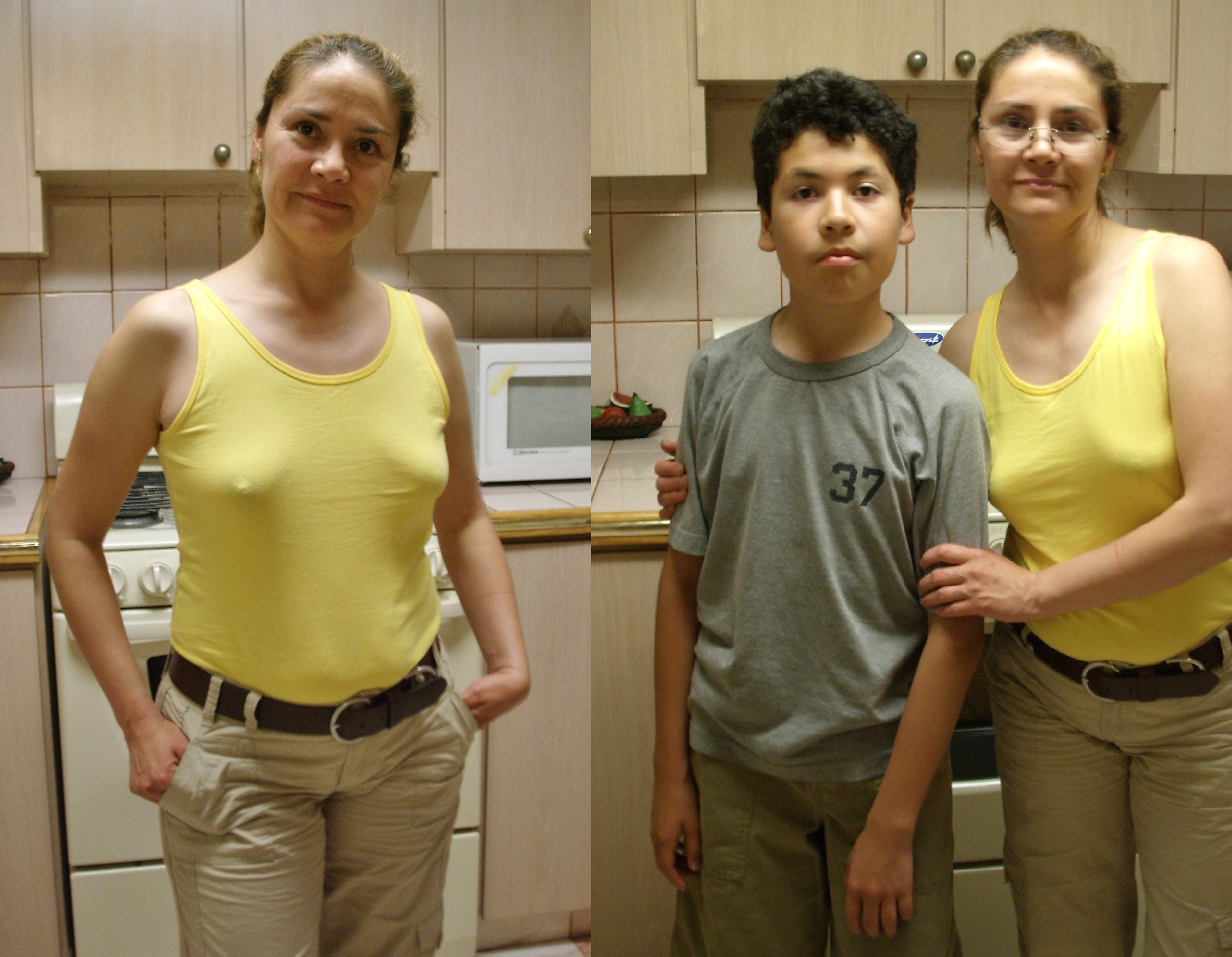 - Unlike girls, a boy at this age continues to love his mother. Therefore, in the relationship of mothers with sons, there are fewer conflicts and more harmony. And in the relationship of mother and daughter, there can be more conflicting feelings: in addition to love, they contain jealousy, envy and rivalry.
- Unlike girls, a boy at this age continues to love his mother. Therefore, in the relationship of mothers with sons, there are fewer conflicts and more harmony. And in the relationship of mother and daughter, there can be more conflicting feelings: in addition to love, they contain jealousy, envy and rivalry.
For a daughter, both poles of maternal love are equally dangerous: her lack and excess
In this connection, the image of the little girl who was once the mother herself clearly shines through. This image brings her back to memories of her own childhood, her relationship with her own mother, the experience of love and pain.
Both poles of maternal love, its deficiency and excess, are equally dangerous for a daughter. But the relationship of mother and daughter is not a relationship of two, but always of three people. “The father separates them and tells his daughter: “I am your mother’s husband and lover,” explains Elina Zimina. “At the same time, he supports his daughter, admiring her femininity, and makes it clear that later she will meet a man who will give her the desired love.”
“At the same time, he supports his daughter, admiring her femininity, and makes it clear that later she will meet a man who will give her the desired love.”
The third person who helps mother and daughter separate from each other may not be only the father or the mother's partner. An idea, a passion, a job is something that can completely capture a woman’s thoughts so that for this time she forgets about the child, feels “separated” from him.
A psychotherapist can, of course, also take on this role. “With one“ but ”, which is often not taken into account in dreams and plans,” Ekaterina Mikhailova insists. “Any third person is a temporary figure: having fulfilled his role, he must fade into the background, making room for the development of relations.”
Far and near
Where is the boundary between a good, trusting relationship and complete dependence on the wishes and moods of the mother? It is not always easy to find the answer to this question. Especially now, when a friendly relationship with the mother ("mother-girlfriend") is becoming the ideal of many women.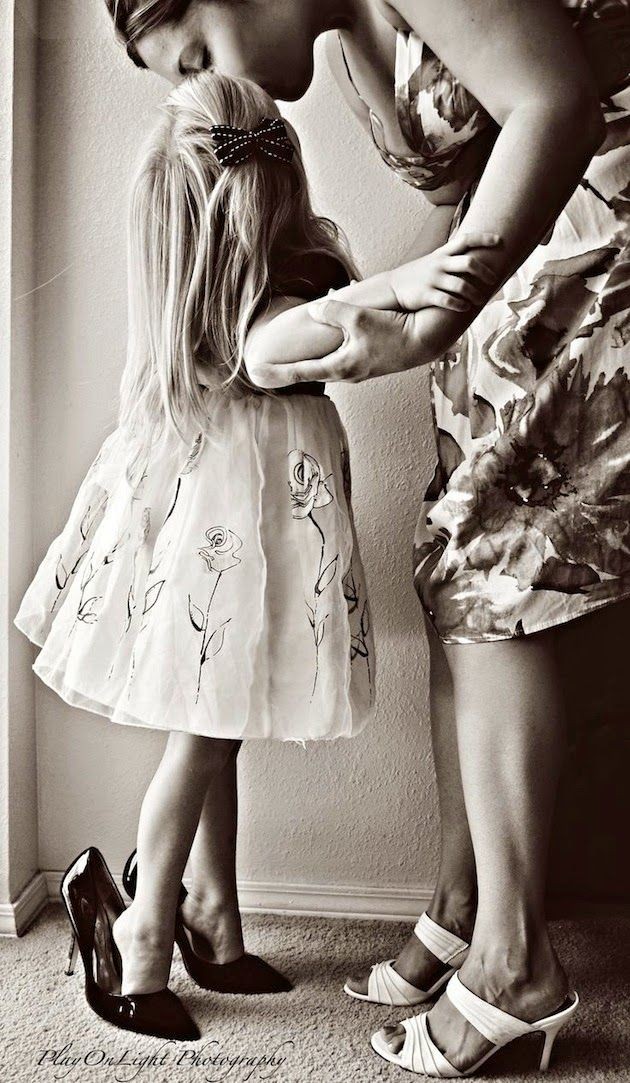 But often they hide the lack of distance, the very “uncut umbilical cord”.
But often they hide the lack of distance, the very “uncut umbilical cord”.
Daily calls, requests for advice, intimate details - this is how it looks in life. But constant conflicts, and even a gap between mother and daughter, do not mean that there is no emotional connection between them. Distance is also not an indicator. “A daughter can be extremely dependent on her mother, despite the fact that they are separated by thousands of kilometers, or live with her in the same house and be independent,” says Elina Zimina.
A woman's natural desire to become independent can be hindered by her mother's desire to keep her by her side, often unconsciously. “Sometimes she perceives the separation of the child as evidence that he no longer loves her and leaves her - perhaps this is due to her own experience of sudden separation,” Elina Zimina gives an example. - She may not be sure of her own femininity and be jealous of her daughter's beauty. Or consider himself entitled to manage her life, because he sees his continuation in it. A single woman can look for a “substitute” husband or her own mother in a child.
A single woman can look for a “substitute” husband or her own mother in a child.
If parents allow their children to be free, but are ready to support if necessary, then the separation will take place peacefully
In response, the daughter manifests anxiety - fear of losing her mother's love, self-doubt, fear of men ... Some mothers want to keep their daughter at any cost, others, on the contrary, they strive to “get rid of” it as quickly as possible. At the first teenage attempts to declare independence, they say: “well, you are completely free and independent, you can live as you want.”
But behind this lies rejection. “Adult children also need support,” says Elina Zimina. “And if parents allow them to be free, but are ready to support if necessary, then the separation is likely to pass peacefully and good relations will continue.”
The path to freedom
True independence comes when a woman critically evaluates her mother's attitudes, behaviors, and life scenarios. It is impossible to completely abandon them, because in this way she will be isolated from her own femininity. But to accept them entirely means that she, having remained a copy of her mother, will never become herself.
It is impossible to completely abandon them, because in this way she will be isolated from her own femininity. But to accept them entirely means that she, having remained a copy of her mother, will never become herself.
“Usually, those who manage to unilaterally “withdraw claims” and stop nourishing painful relationships with their hopes, grievances, or playing the role of an ideal mother or daughter can usually move towards a seemingly desired, but still not advancing independence,” believes Ekaterina Mikhailova . Too close relationship is mutual. Often it just seems that “mom won’t let go” - both are not ready to move into a new phase of the relationship, but the responsibility for this is usually assigned to the older one.
If we really want changes, we need to start with a few tough questions to ourselves, Ekaterina Mikhailova advises: “What am I hiding from myself, explaining all the problems of my life with pressure, influence, interference and the need to take care of one or the other? Maybe it's me who fills the emotional void with the game of fighting for independence?
Maybe the world behind me scares me so much that it's easier for me to stay in a strange mixture of duel, dance and embrace with that other woman? What do I hope for, continuing to sort things out, reconcile, quarrel, reproach - or pamper and please? Maybe, in the depths of my soul, I still believe that it will be possible to prove something, that “she” will agree, accept, approve . .. "
.. "
How do we know if we have really managed to become independent and have broken the mother's umbilical cord? This is so if we are no longer torn apart by conflicting feelings, no longer tormented by internal conflicts. If we ourselves regulate the degree of trust and distance in relations with the mother, without feeling guilty. We can objectively assess what we are similar and what are different from each other. And finally, if we feel that we are connected with the mother in certain bonds, but not tightly attached to her.
As adults, we begin to build relationships with mothers in a new way. However, with some of them, this is especially difficult to do. Psychologist Susan Cohen and journalist Edward Cohen list 10 common types.
- Narcissistic . She dreams of seeing in her daughter a pretty doll who would think only of her mother.
- Supervisory . She has a rule for every occasion. And every time she tells her daughter that she did not fulfill it.

Learn more

